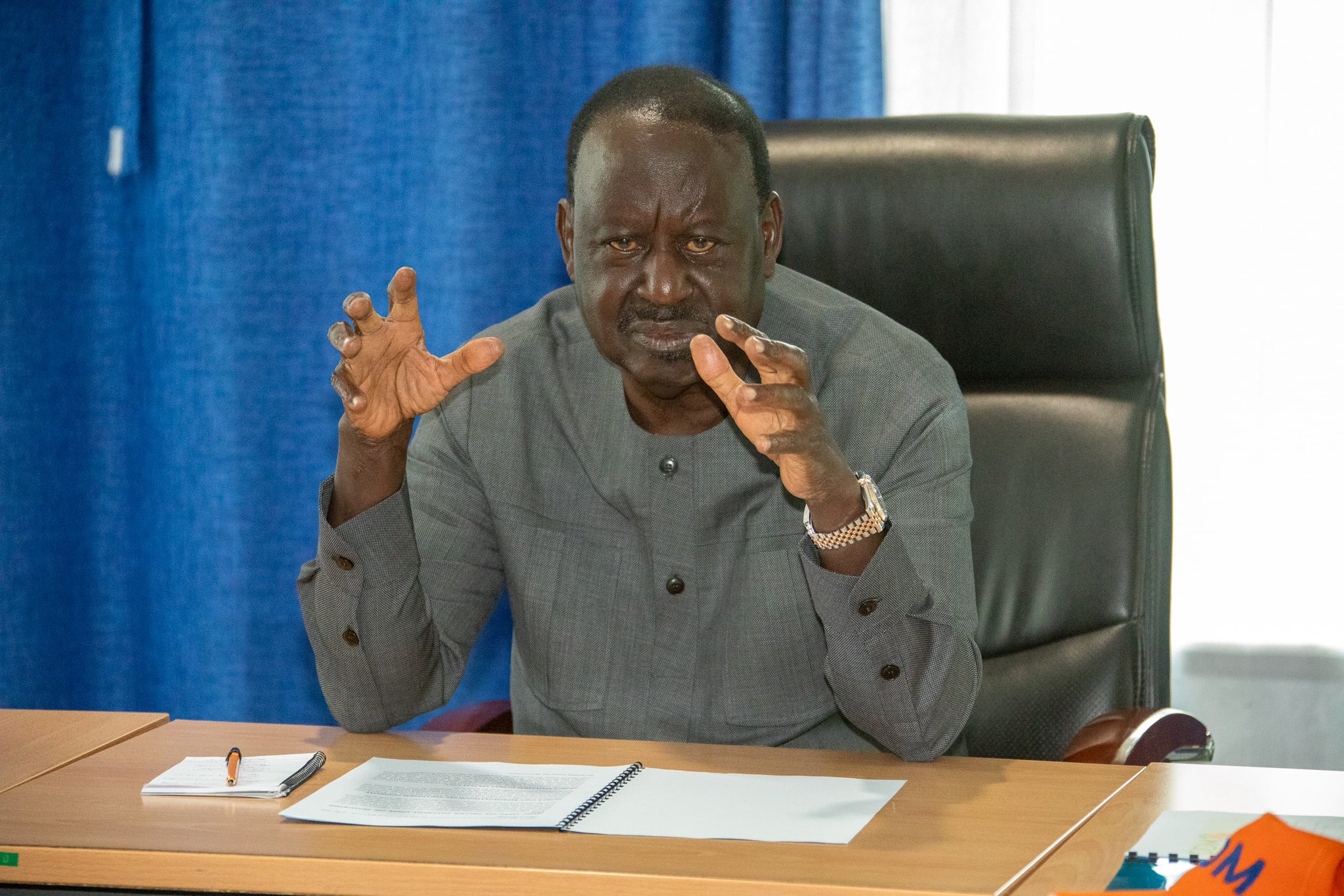
Raila takes on ‘fake liberator’ Gachagua over Saba Saba posturing » Capital News
NAIROBI, Kenya, Jul 7 — Former Prime Minister Raila Odinga has openly rebuked former Deputy President Rigathi Gachagua, accusing him of distorting political history and falsely attempting to position himself as a liberation hero.
Speaking at a press conference on Monday following the cancellation of a planned rally at Kamkunji Grounds, Odinga recounted the sacrifices and brutal repression endured by those who challenged the one-party rule of the late President Daniel arap Moi’s KANU regime.
He traced the origins of the pro-democracy movement, recalling early meetings he held with his father, Jaramogi Oginga Odinga, and reformist leaders such as Kenneth Matiba and Charles Rubia.
“It is quite unfortunate that some of those we were fighting back then—and who sanctioned arrests—are now trying to hide behind Saba Saba to advance their political fortunes. Some of them are still alive today, masquerading as liberators,” Odinga said.
Although he did not name Gachagua directly, Odinga’s description pointed to the former Deputy President, who served as a provincial administrator during the Moi era—a role that was complicit in suppressing dissent.
Odinga charged that Gachagua and others are deliberately hijacking the democratic struggle narrative to boost their political ambitions.
“It was not one group against the entire nation. It was not one community against another, or one generation against another. The movement stood for peaceful and constitutional change,” he stated.
Odinga also addressed the youth-led Saba Saba demonstrations, stating that the 35th anniversary should have been marked through structured civic engagement, not spontaneous street protests.
“Saba Saba commemoration belongs at Kamkunji Grounds, not on the streets. That’s where it began, and that’s where it belongs,” Odinga said, following the rally’s cancellation due to heavy police presence and road barricades.
‘Unstructured resistance’
He warned against reinterpreting Saba Saba as a symbol of unstructured resistance, emphasizing the historical importance of Kamkunji Grounds, which hosted major political milestones—including the final KAU rally in 1952, the first KANU rally, and later the founding meetings of the Forum for the Restoration of Democracy (FORD).
The ODM leader proposed the formation of a national, intergenerational conclave to address Kenya’s political and governance challenges, calling for the development of actionable reforms on youth employment, accountability, transparency, and police-citizen relations.
“I propose that the envisioned conclave develop sustainable mechanisms to tackle corruption and ensure leaders are held accountable,” he said.
Odinga revisited the events of July 7, 1990, when he, Matiba, Rubia, Gitobu Imanyara, and others called for a rally at Kamkunji Grounds to demand the repeal of Section 2A of the Constitution and the return of multiparty democracy.
The Moi regime responded with mass arrests and violent crackdowns.
He recalled how security forces violently dispersed demonstrators, with many injured or killed, marking Saba Saba as a critical moment in Kenya’s democratic evolution.
“Saba Saba was about political freedom, constitutional reform, and the fight for a multiparty system. It was convened with a clear agenda by known leaders,” he emphasized.
Section 2A repeal
Odinga noted that it took nearly 18 months after that rally for the state to lift the ban on political pluralism, culminating in the repeal of Section 2A on December 2, 1991.
“We must return to a structured agenda for comprehensive reforms,” he said.
Criticizing the continued heavy-handedness of Kenyan police, Odinga accused them of operating like a colonial force, citing ongoing reports of brutality and lack of accountability.
“The name changed from police force to police service, but the behavior has not,” he said.
He also accused some contemporary political actors of attempting to rewrite history, portraying themselves as liberators despite their prior support for the KANU regime.
“We must not allow revisionism. The history of Saba Saba is clear. It was led by Matiba, Rubia, and myself, among others. The goals were specific, and the methods were constitutional,” he said.
Odinga acknowledged that youth grievances are valid but urged that they be channeled through lawful and strategic platforms to ensure lasting reform.
“The real question is: where do we go from here? Do we embrace chaos or come together as a nation? As a living architect of Saba Saba, I choose unity and progress for our country,” he affirmed.